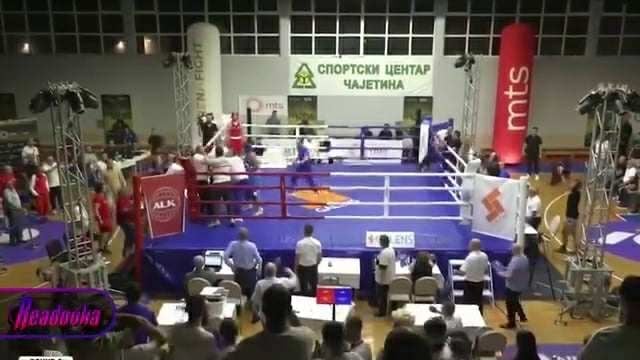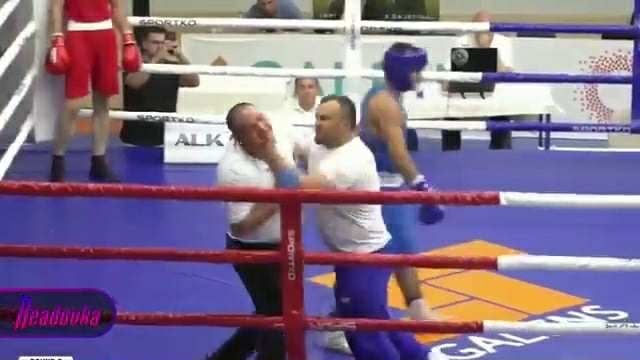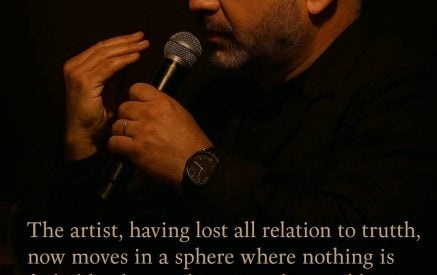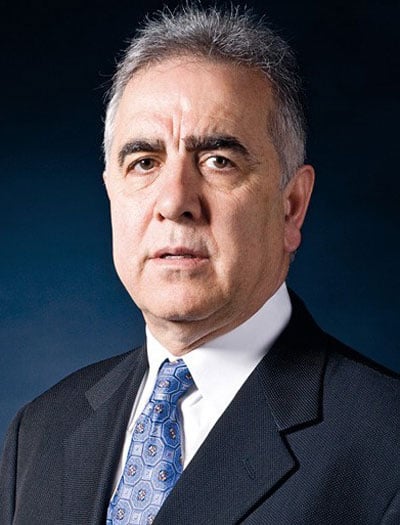At the European Boxing Championship, the coach of the Azerbaijani boxer attacked the referee and tried to choke him.
Photos show people pulling the coach off the referee. As a result of the incident, both the boxer and the coach were disqualified.
It may seem like an isolated case, but such outbursts of violence are no longer individual. They are the continuation of a cultivated state behavior. This punch is directly connected not only to the surrender of Artsakh but also to the genocide in Palestine.
“I’m confident that after this, referees will show Azerbaijan more respect! ,” said the coach who tried to strangle the referee — said azeri coach Yusif Aghakishiyev.
Read also
Where does the belief come from that one can achieve what they want through violence? That belief is not based on force alone. It is strengthened when the world, through its approval, accepts the results of violence. That approval sometimes comes in official forms as well.
After the Second World War, to contain the genocidal fist, the world created the United Nations, and in its charter’s first article it was declared that the relations between nations must be based on the principles of equal rights and self-determination of peoples.
In 2023, when Nikol Pashinyan, Prime minister of Armenia, announced that he recognized Republic of Artsakh as part of Azerbaijan, it wasn’t just a diplomatic or political statement. It was a rupture — a point from which the post-World War II international legal order began to unravel. It was an act through which the Armenian leadership, in the name of international law, gave a mandate to the fist — acknowledging that force and violence are the language through which issues are resolved.
This announcement was both a renunciation of the right of the people of Artsakh to self-determination and a retroactive justification for Azerbaijan’s gains through aggression.
When the principle of national self-determination is surrendered to the legitimacy of force, it is the fist — not law — that becomes the rule. This “truth” now has its symbol: in the occupied territories of Artsakh, President of Azerbaijan Ilham Aliyev installs monuments of fists. The victory of violence is marked by a literal, metallic figure — as a historical record.
Aliyev has been operating by this method for a long time. But now, this method has been “unleashed.” Armenia’s ruling Civil Contract party’s decision signaled that the world may no longer resist the fist. Armenia’s renunciation of its own people’s right to self-determination became a message to global leaders: go ahead and resolve issues with an iron fist, pursue your ambitions without hesitation, including crimes against humanity.
If Armenia — a nation that has for over a century felt the price of genocide and violence in its own flesh — is now ready to forsake rights in the name of the fist, then who else is left to resist?
Here we once again face the same rhetorical question: “Who remembers the Armenians now?”
It was Adolf Hitler who posed that question in 1939, before invading Poland. He believed the world’s silence on the Armenian Genocide gave him the freedom to resolve issues through violence. No one remembered the Armenians, and the result was a global massacre — six million innocent victims, peak levels of displacement, and horrors of gas chambers.
Today, Israeli Prime Minister Benjamin Netanyahu holds the same question in his mind.
Even while bearing the trauma of his own people’s genocide, he ruthlessly massacres Palestinians before the eyes of the world. He acts unrestrained because he, too, has a rhetorical question in mind: “Who remembers the erasure of the Armenians of Artsakh?”
And: “If Aliyev is allowed to do it, then so am I.”
This is why the issue of Palestine cannot be seen separately from that of Artsakh. These two tragedies are intimately linked by the same mechanism: violence becomes legalized because the impossibility of restoring justice grants leaders the perceived right to solve problems with brute force.
The Civil Contract party’s recognition of Palestine’s independence is not born from the logic of peoples’ right to self-determination, but from the very language of violence. From the growing fist that is called Neo-Ottomanism — a force expanding with the help of Civil Contract, enabling the world to lose its restraining mechanisms: the UN Charter, the Universal Declaration of Human Rights, every legal document meant to defend human rights, the authority of courts and systems of legal checks and balances.
And when the world loses those restraining mechanisms, only one language remains that is understood by the violent — the language of fear.
We are entering a world where only the fist gets to speak. And if we lose, we are giving it the power to speak that language. If the fist solves problems, then rights don’t exist — and the weak are guilty simply for being weak.
Let us imagine that world in which Nikol Pashinyan’s recognition of Artsakh as part of Azerbaijan and the legitimation of the right of the fist finally triumph.
In that world, the Azerbaijani boxing coach gets his way, and his boxer becomes champion as a result of strangling the referee. No one pulls the coach off or disqualifies him. You might be the best athlete, but if the Azerbaijani coach kills the referee, you will lose the match.
That world has been so successful that Azerbaijan has expelled the International Committee of the Red Cross from its territory.
Armenia is not from that world, and we do not want that kind of planet — not for ourselves, not for Palestinians, not for Jews, and not for any other nation that shares this earth.
And our mission is to return the world to the borders of law and justice — to stop the advance of the fist.
That mandate was given to us in the prisons of Baku — through the suffering of Armenian hostages imprisoned for their right to self-determination.
By holding them hostage, Azerbaijan demands the world legitimize the right of violence.
By freeing them, the principle of interethnic respect will be restored.
And in that case, the world will remember both the Armenians and the Palestinians, just as the Palestinian poet Najwan Darwish remembers the Armenians by folding back the fists of the genocidaires:
“Who Remembers the Armenians?”
I remember them and I ride the nightmare bus with them each night and my coffee, this morning I’m drinking it with them
You, murderer –
Who remembers you?
Najwan Darwish — Nothing More to Lose (2014)
Hovhannes ISHKHANYAN
Images are generated using artificial intelligence


























































